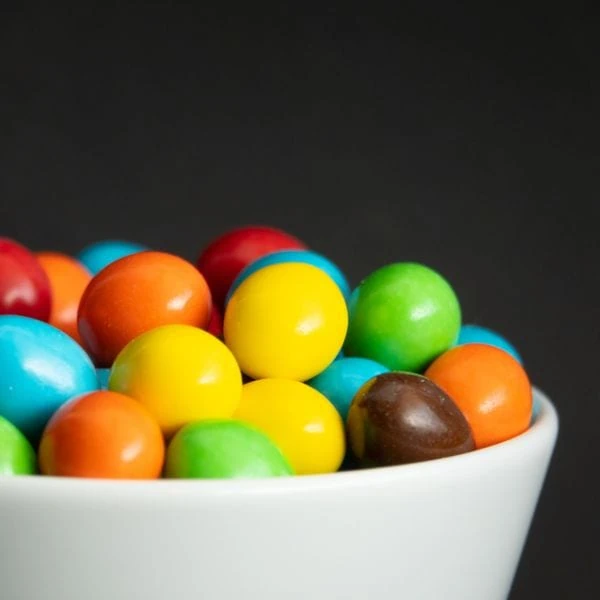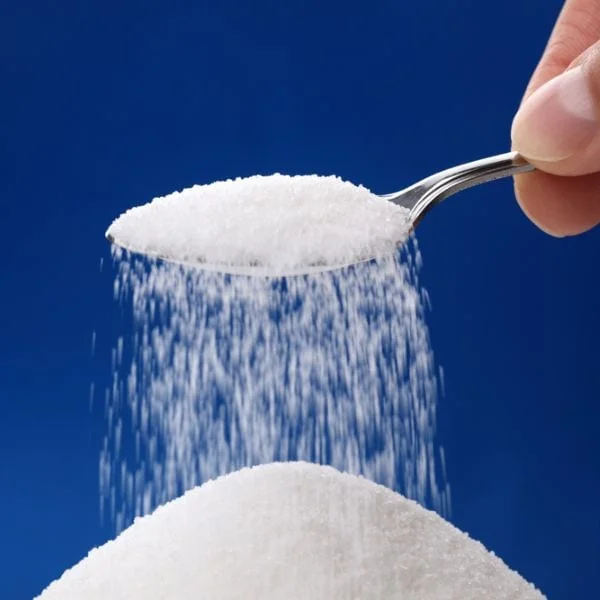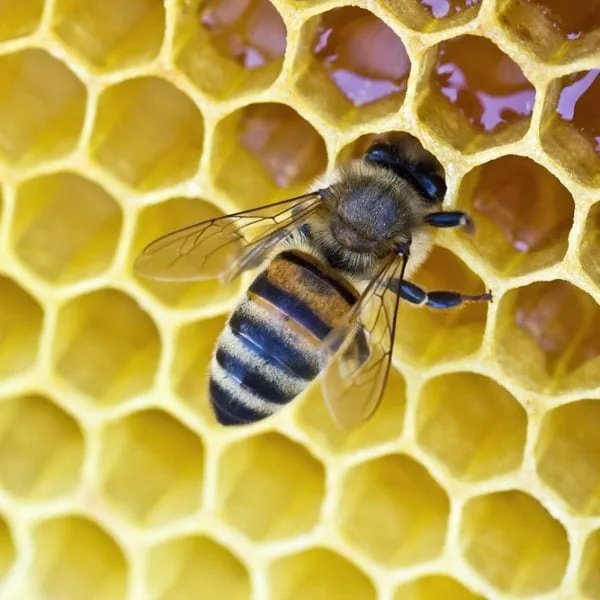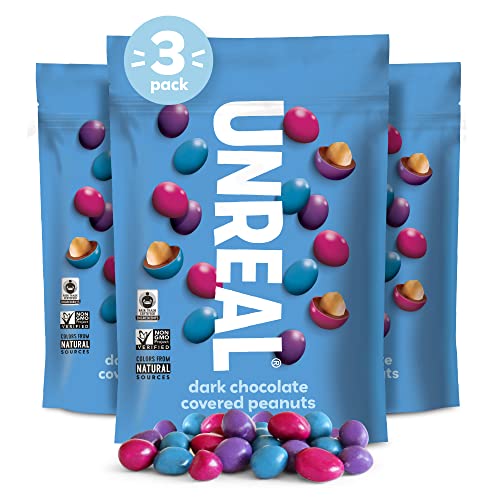When you first take the plunge and ‘go vegan’, finding out which of your former favorite foods are still okay to eat can be quite the taxing process. So, with that in mind, are M&M’s vegan?
Unfortunately, no, M&M’s are definitely not vegan.
They have milk powders and milk fats. At least 14% of the candies are milk solids. When you factor in sugar, artificial colors, and the impact of the added palm fats on the environment where they’re obtained, you’ve definitely got a recipe that’s not vegan-friendly at all.
In today’s article, we’ll take a closer look at M&M’s with an eye for ingredients, as well as a quick explanation of why the problem isn’t just about the milk. We’ll also cover other M&M varieties and give you some vegan-friendly alternatives that you can try if you’d like a similar candy that doesn’t come with all that unwanted animal-byproduct baggage.
Are M&M’s vegan? Definitely NOT, but let’s take a look around the basics and the ‘why’ of it for those who are curious and perhaps also open to some yummy vegan-friendly alternatives!
Milk chocolate — The name says it all
Starting off, you may remember a traditional ad campaign for M&M’s that cited ‘milk chocolate melts in your mouth – not in your hands!’ and that’s our first enormous red flag.
Milk is used quite extensively in making these tasty treats, with the labels advising that there is a minimum of 14% milk solids making up the candy’s contents. That’s just part of the makeup, though, so let’s be thorough and peek ‘under the hood’ at the ingredients that standard chocolate M&M’s bring to the table.
A closer look at M&M’s Ingredients

Listed below are the ingredients for M&M’s chocolate candies and while there are some safe ingredients, such as cocoa butter, beetroot concentrate, and acacia-derived gum Arabic, we’ve got a whole lot more that are definitely not vegan-friendly.
Take a peek and see what sticks out to you and we’ll highlight the ‘worst offenders’ in the sections to follow:
- sugar
- cocoa mass
- skimmed milk powder
- cocoa butter
- lactose
- starch
- milk fat
- palm fat
- glucose syrup
- shea fat
- stabilizer (gum arabic)
- dextrin
- glazing agents (beeswax, carnauba wax)
- colors (E100, carmine, E132, E133, E150a, E150c, E150d, E153, E160a, E160e, E162, E163, E170)
- beetroot concentrate
- emulsifiers (soya lecithin, E445)
- salt
- flavorings
- palm kernel oil
- antioxidant (E306)
- May contain peanut, hazelnut, almond
Final disclaimer on the package:
Milk chocolate contains milk solids of 14% minimum. Milk chocolate contains vegetable fats in addition to cocoa butter.
Now that we’ve had a closer look at the overview, let’s tighten the focus to the ingredients that really stand apart from all of the rest.
Narrowing our focus- Ingredients of the most concern to conscientious vegans
After peeking through those ingredients, we have 4 main offenders (besides the prominent dairy) that definitely take M&M’s further out of the ‘vegan-friendly’ zone.
We’ll list them here and tell you a little more about the reasoning behind them in the sections that follow. Here are the 4 big offenders on that ingredients list:
- Palm kernel oil
- Sugar
- Artificial colors
- Beeswax
Palm kernel oil… wait, what?!

Palm kernel oil, as the name suggests, comes from the fruits of Oil Palm trees, or as they are known among plant aficionados, ‘Elaeis guineensis’.
While the ingredient itself is certainly vegan, since no animals are harmed in actually processing those fruits, the problem for some vegans is that this oil is quite popular and the demand for it has resulted in deforestation in many biodiverse tropical ecosystems. This, of course, affects the animals that live nearby and so this ingredient has become a ‘dealbreaker’ for many vegans around the globe.
It’s kind of a moot point with the mountain of dairy that makes up M&M’s, but palm kernel oil is used in quite a lot of things that you might not have been aware of. It’s a popular ingredient in body creams and cosmetics, for instance, and you’ll find it in a lot of cooking oils, confectionery fats, margarine, and shortenings.
Keep in mind that some oil sourced may well simply come from dedicated farms and thus be considered 100% vegan friendly, but without knowing the source it’s considered very shaky territory at best.
A hint about sugar – it’s not naturally that white

While sugar isn’t ‘bleached’ while it’s refined, there are additions such as sulfur dioxide and processes like lime purification and ion exchange that help to give it that snowy white color that we all know and love.
However, there’s also an additive that you might not like so much that is present in a lot of the sugar available on the market. It’s called ‘bone char’ and it’s basically an inexpensive whitening agent which is derived from cattle bones.
Large companies such as Mars Incorporated (who make M&M’s) tend to procure their sugar from multiple sources, so determining if M&M’s have bone char added can be quite a challenge.
We should also note that some vegans allow themselves sugar due to its widespread prevalence and the logistics behind asking every restaurant where they get their sugar and also contacting companies to ask the same. Ultimately, this decision is up to you but for some vegans, this is definitely a dealbreaker.
Artificial colors – How were they tested?
Artificial colors are also a big, red flag to many vegans, and so we would be amiss if we did not mention them here. On their own, they’re technically vegan, as most synthetic colors are derived from petroleum or plant extracts, but many vegans feel that since they were likely tested on animals at some point that they should be considered off the menu.
This is another personal judgment call that you will need to make, but for some the development phase of these colors is considered cruel and ultimately unnecessary, since you could still produce products without dying them in the first place.
Beeswax is definitely not considered vegan

Beeswax, as the name suggests, comes from bees and since this is felt to be exploitative of animals, it’s yet another mark on M&M’s vegan report card.
It’s an additive to the candy shell that keeps it from coloring your hands and helps keep the chocolate core cohesive by working in conjunction with the candy shell. It’s an effective arrangement but vegan…. Certainly NOT!
Vegan-friendly alternatives to M&M’s
So, now that we’ve established that M&M’s are about as vegan as a shot glass full of milk, it’s time to soften the blow by giving you some alternative options that are both tasty and vegan-approved. We’ll tell you a little about each of these items in the section below and if anything piques your interest, then be sure to use the link to find out more and see what you think.
Below are some of the best vegan-friendly alternatives to those milky, bee’s-waxy M&M’s!
Unreal Peanut Gems
Founded in 2010, Boston-based Unreal Brands has been providing non-GMO vegan goodies that are really tipping the scales when it comes to flavor. This particular offering is for those who love peanut M&M’s and what you get with Unreal is a dark chocolate version of that. No milk is used, nor sugar alcohols and it’s a low-sugar treat that really packs a chocolatey punch.
These folks also believe in ‘Fair Trade’ for farmers, so even the ingredients are sourced carefully to ensure that you can scratch your chocolate itch completely guilt-free. It’s refreshing when a company goes comes to its senses and targets loyal vegan customers for a change and if you want to see more of its offerings (like peanut butter cups, hint hint) then be sure to visit Unreal Brands when you’ve got a moment – we think you’ll find it well worth your while!
Choco No-No’s
Choco No-No’s are a fantastic treat created by No Whey Foods, another smart business catering to the needs of the mighty masses of vegan customers around the world. This particular offering is a great alternative to standard chocolate M&M’s and the way that they make it, you can enjoy it without any worries.
Choco No-No’s are vegan-approved – no shellfish, no dairy, no artificial flavors or colors – and they are also allergen-free and not only gluten-free but made in a dedicated facility to make sure of it. This is good news for vegans and for seekers of gluten-free products as well, so be sure to check out these chocolates and if you’re feeling curious, you might even pay their site a visit to see what else they have that might tickle your fancy!
Unreal Dark Chocolate Quinoa Gems
Unreal has their own crunchy chocolate M&M’s offering and some folks swear by the stuff. Unreal’s Dark Chocolate Quinoa gems are vegan treats that are also gluten-free, and these pretty little candies are colored using only vegetable extracts. When you add in that you’ve got dark chocolate with quinoa providing a satisfying crunch to the candy, you’ve got a recipe for ‘alternative M&M’s’ that you might just find superior to the actual product.
They’re addictive and well worth trying if you’re looking to scratch that M&M’s itch and still looking for a product that definitely brings the goods!
A little advice on brands like Little Secrets Candy
You may have been told about Little Secrets as a nice, vegan-friendly option, and like any other new products that you try, you’re going to need to do your homework. While they DO produce some options that seem to fit the bill, Little Secrets themselves have stated that NONE of their products are certified to be vegan. For instance, palm oil is prevalent in many of their products and we’ve mentioned the potential pitfalls with that before.
It’s probably more accurate to label them as ‘vegetarian’ at best and if there is a product that you are considering, then we aren’t advising against it – just stating that you’ll really want to take a closer look at the ingredients to see what you think. After all, if the company itself won’t state that their products are 100% guaranteed vegan, then we’re certainly not going to say otherwise.
With other companies that produce products that SEEM vegan but don’t make the effort to guarantee that, you should always be ‘on your toes’. There’s no reason not to advertise being ‘vegan friendly’ – it just gets you more happy and loyal customers – so if a company won’t say it, then there’s probably a good reason.
FAQs
It’s just about time for us to go, but before we do, we’d promised to tell you if any other M&M’s varieties were considered vegan and we’ll include that among our frequently asked questions on this subject. Let’s take a look and after this, we’ll go ahead and wrap things up properly!
Is it true that M&M’s aren’t even vegetarian?
Actually, YES, according to M&M’s UK Twitter, where the following was posted:
“M&M’s aren’t suitable for vegetarians. We use additives that come from animal products when we’re making M&M’s and traces of these can be found in the sweets. They aren’t listed in the ingredients because they’re only present in such small amounts.”You can view the tweet here to confirm it and if it doesn’t come up, then just be sure to check the Internet Archive Wayback Machine where you can enter the link directly and read versions that have been saved on the web.
Also, it’s probably good to take note of that statement ‘they aren’t listed in the ingredients because they’re only present in small amounts’ and let that sink in – there’s a reason vegans have to remain vigilant and statements like this really hit the nail on the head!
Are any of the other types of M&M’s vegan?
No, none of the other types of M&M’s, such as Sweets, Minis, or even Dark Chocolate varieties are considered vegan. Each and every one of them has animal-derived ingredients such as milk solids or beeswax that make them unsuitable for the demands of a proper vegan diet.
Is M&M’s candy-coating vegan?
No. The candy coating itself is basically sugar, but beeswax helps to micro coat the candy so that it won’t melt in your hand. As this is derived from bees, even the candy coating should be considered not vegan.
Some closing words
Today we’ve answered the question ‘Are M&M’s vegan?’ and the answer, unfortunately, is a resounding ‘No’. Not only do they contain a minimum of 14% milk solids, but they also have beeswax, possible bone char from sugar, small amounts of animal byproducts that aren’t even mentioned, and the artificial colors and environmental impact of palm oil are the final nails in the coffin.
Thankfully, you’ve got quite a few alternatives out there, just be sure to always vet the ingredient list, even if it’s a recommendation from a friend. It’s a good habit to get in and even to repeat sometimes with brands you’ve grown to trust – it’s unfortunate, but sometimes ingredients CHANGE as a way to produce a product more cheaply.
That said, with more and more businesses catering to vegan needs, it’s certainly quite a bit easier these days to keep 100% vegan. So, keep checking and rechecking, and be sure to grab some vegan-approved M&M alternatives – at least that way, you can check while enjoying a delicious snack experience!
Thanks so much for reading and until next time, we wish you and yours the very best!









David learned to cook at an early age after his mother told him that he couldn't live on pizza forever, Dave uses his modest kitchen skills to recreate sorely-missed recipes from home and to occasionally make new favorite ones from places he is visiting.